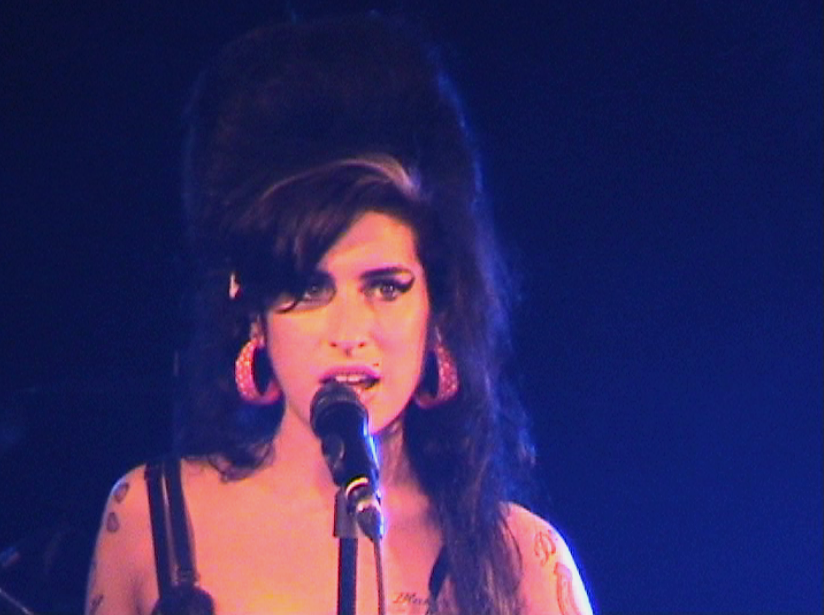The music industry has to keep churning. It can’t wait for genius. It’s like a mining operation that seeks precious stones but in the meantime sells whatever rubble it happens to dig up. Labels pair savvy producers and engineers with good singers who are attractive and can be taught to dance. Songs are crafted like computer apps, drawing on researched, time-tested formulas. The results are beautifully polished and arranged, a display case full of nearly-indistinguishable semi-precious stones. And then, once in a very long while, comes a diamond. It’s when the likes of Amy Winehouse appear that we remember what real inspiration sounds like.
Amy, the new documentary by director Asif Kapadia, tells the story of Winehouse’s tragically brief life and career. The film raises issues on many fronts—addictions, destructive relationships, personal responsibility, and the fact that people who say, “Life is short,” often seem inclined to make it so. But if the film was only a chronicle of tragedy and self-destruction, it would not be so compelling. That it is also a portrait of a major talent is what lends weight to every scene. Watching Winehouse on Grammy night in 2008 (one year the awards industry managed to get it right) is crushing—an artist at the pinnacle of well-deserved success, temporarily clean and sober, who has just 41 months left to live. The distant knell can be heard when her best friend tells of how Amy pulled her aside that night and complained, “This is so boring without drugs.”
But horrible as it is to watch her steep decline, Amy can’t help but function as a reminder of how rarely genius intrudes into popular music. In one interview, Winehouse describes how flat she found the 80s/90s sonic landscape, and how she wanted to make the kind of music that she would want to hear. For many, myself included, the effect of hearing Winehouse’s Back to Black album for the first time was a sudden snap to attention, the arrival of something you barely knew you’d been waiting for. Winehouse’s lazily soulful phrasing was applied to lyrics of brutal, profane honesty, lyrics that were by turns universal and cryptically personal. Like a Joni Mitchell record, you knew it couldn’t have come from anyone else. Producers could shape it, polish it, and craft it, but the results were never going to be the sort of generic karaoke hits usually cranked out for today’s pop stars. It was always going to be the indelible work of Amy Winehouse, however little of it we would get. The music industry may grind on regardless, but Amy reminds us of what we will go on missing.
Photo by Frank Hommel via Flickr.









